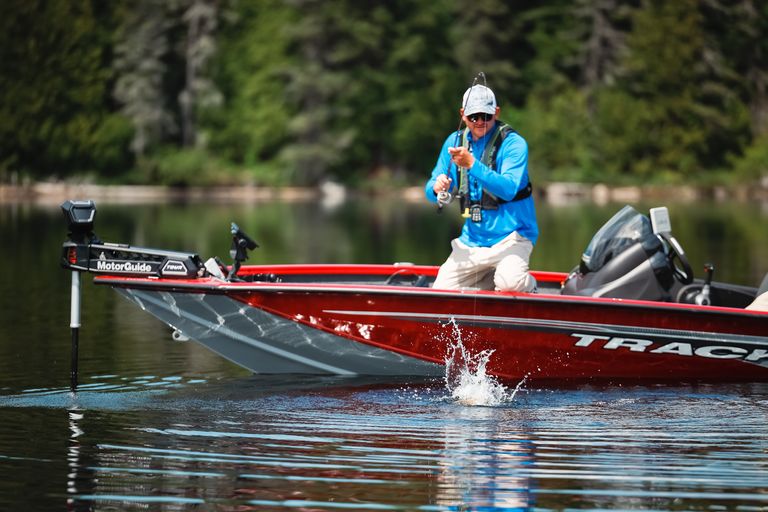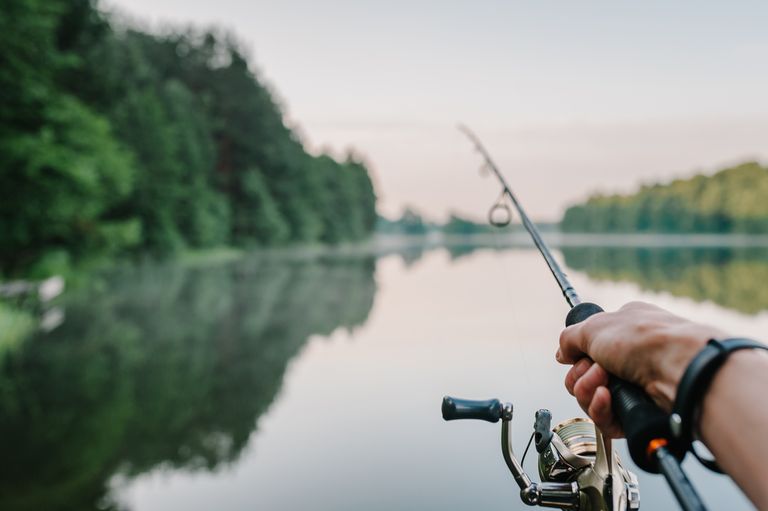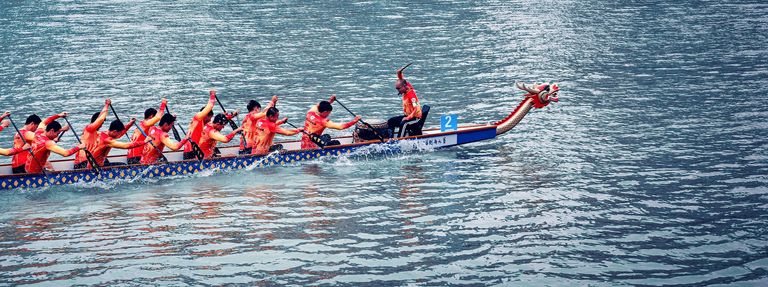Is a Bass Boat Good in Rough Water?
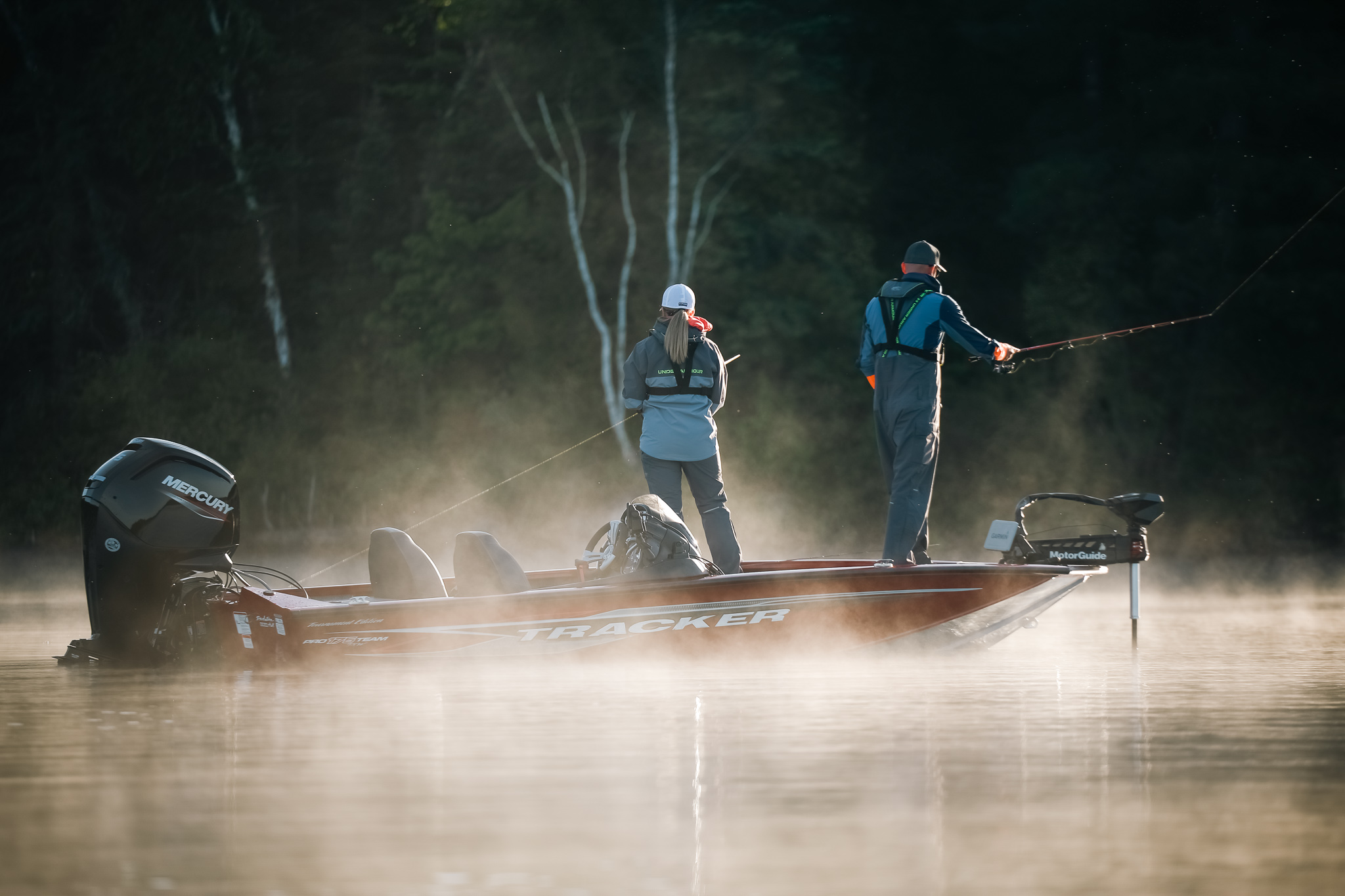
When you plan to head out on the water, you want to be in a boat with the capabilities you need. What you need from your boat can be very different on a lake or river compared with the open ocean, and it's never a good idea to get caught unaware in a boat that isn't set up for how you plan to use it.
Operating a boat on a fishing trip, for example, means you'll need to have a boat that's ready for the elements, stable enough to fish from, and sturdy enough to protect you and any passengers for the length of time you'll be fishing.
Do you fish for bass from a bass boat? If your fishing trip takes you into rough water, here's what to know.
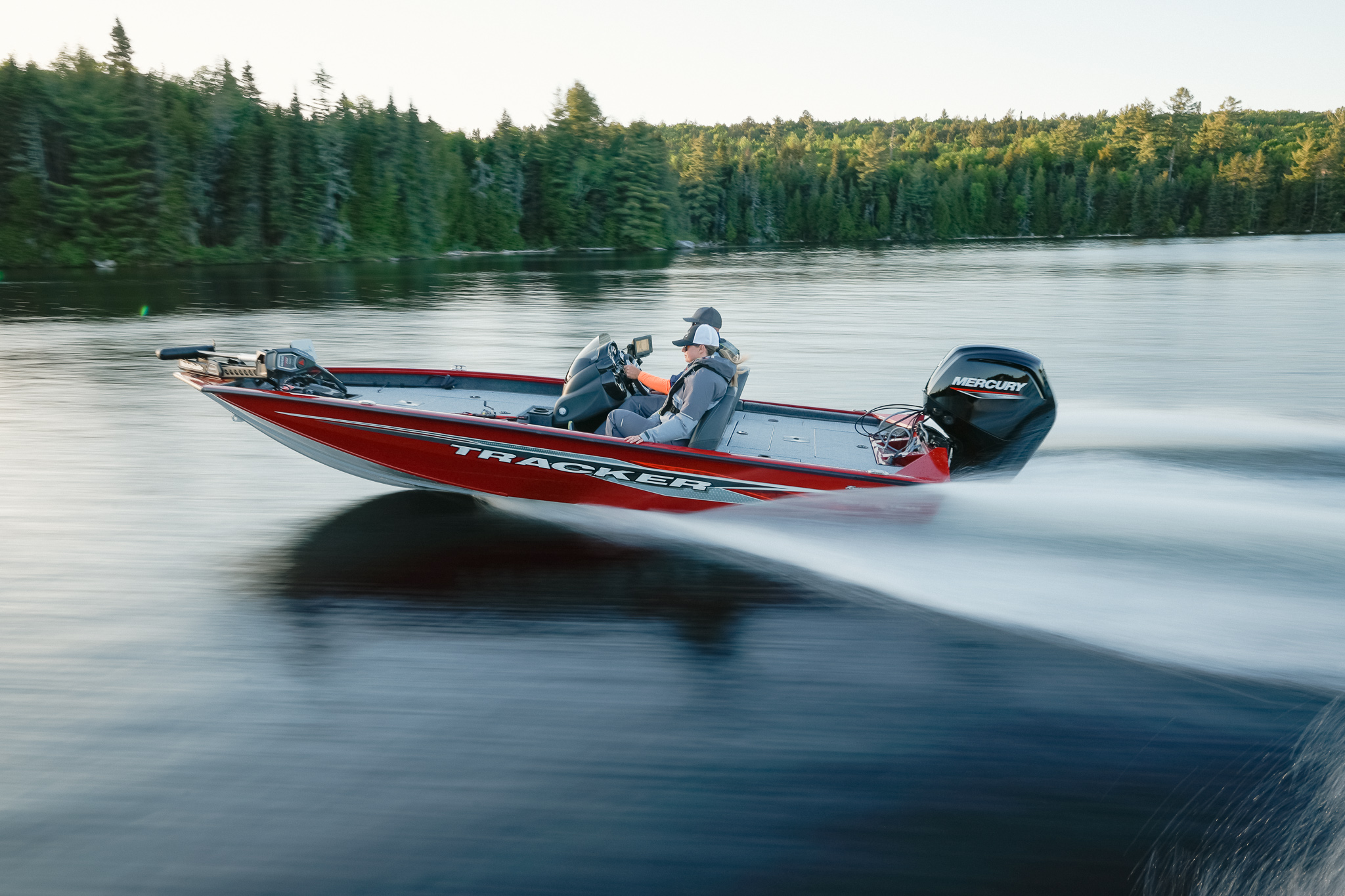
What to Know About the Design and Purpose of Bass Boats
These boats are primarily used for fishing in calm, shallow waters like rivers and lakes. They're made to be sturdy platforms for people to sit and fish from, and to give you the space to do that, they need to have a shallower profile.
Taking your boat into the open ocean or even onto a lake when the weather is inclement could cause safety risks and an uncomfortable ride. Their hull design is flatter and optimized for stability in calmer waters.
Boats used for bass fishing can be fast and maneuverable in tight spots, making them excellent choices for river and lake fishing adventures. However, for the best experience, the weather must be good, and the water should be calm.
Rescheduling your trip is a good idea if bad weather is predicted.
Performance in Rough Water
You should understand its limitations if you plan to take your bass boat out into rough waters. Not only can that help you make a decision that could affect the enjoyment of your fishing trip, but it can also help protect you and your passengers.
Because these boats have lower sides and a shallower design, they are more likely to take on water if exposed to rough conditions. A lower freeboard contributes to water splashing over the sides. If you don't have a plan to remove it, you could end up at risk of sinking.
The flatter hull shape on a vessel typically used for bass fishing is also a consideration because it's not as effective at cutting through waves. That can mean a rougher ride, which isn't very enjoyable and could make some passengers seasick.
Bass Boats are Lightweight
Lightweight construction is another consideration for taking this boat out into rougher waters. Because your boat doesn't weigh much for its size, traveling in it can be very jarring when the water isn't calm. The bouncing could reduce your ability to control the boat and increase injury risk.
Additionally, the jarring motion could damage the boat itself, leading to expensive repairs and downtime. If you want to get out and fish as much as possible, ensuring your boat is in good working order is vital.
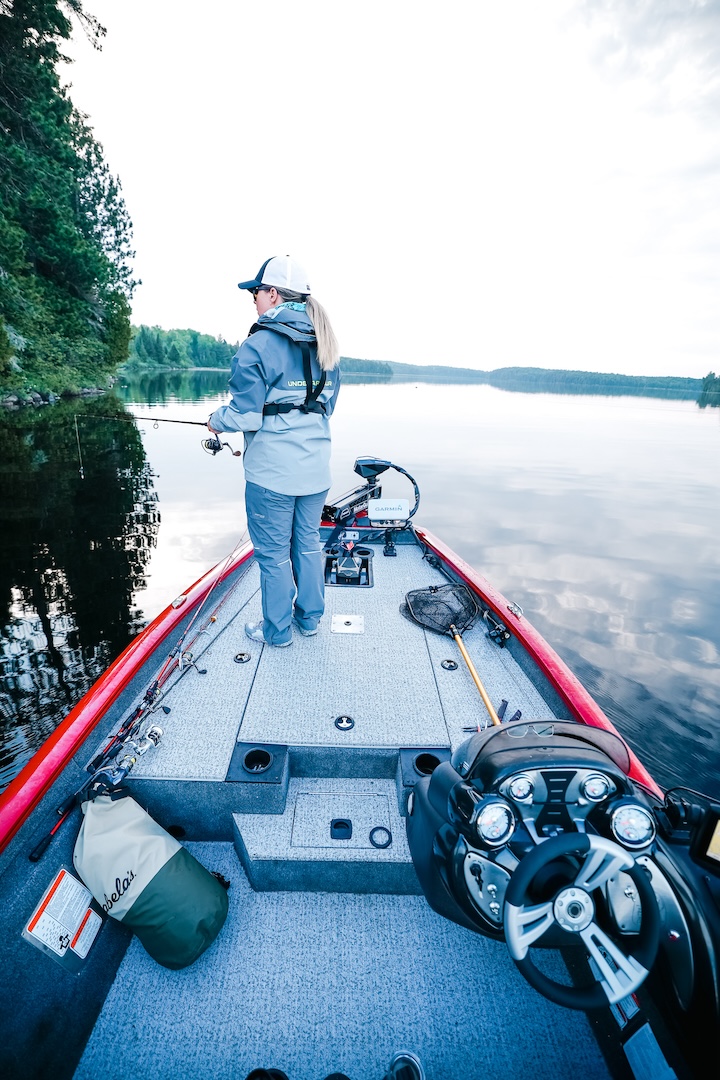
Safety Considerations
Handling and stability are essential for safety. If you're dealing with rough water, you can't control the boat as well as you'd like, which may mean putting yourself and your passengers at risk.
Losing control of a boat or having it become unstable puts you at risk of capsizing, which can be catastrophic and extremely dangerous.
Avoiding rough water is the best choice. However, even in calm waters, you should wear life jackets and take proper safety precautions.
Always check the weather conditions before you head out to go fishing so you can adjust or reschedule your trip if you see a chance of bad weather that could lead to rough water.
Also, emergency preparedness should be considered. Make sure you have a plan to respond appropriately if something goes wrong while out on this water. That includes ensuring your communication devices are working and knowing the nearest safe harbors.
You can't always avoid an unexpected storm or another issue, so you need to know where to go if the waters get too choppy.
Bass Boat Alternatives and Modifications
If you enjoy bass fishing but frequently navigate rough waters, consider choosing a different type of boat.
For example, deep-V hull boats are much more stable in choppy conditions. However, they aren't perfect for every location, so consider all the factors you're dealing with before buying one.
If a different boat isn't an option, sometimes, you can modify the boat you already have to improve its handling in rough water. One modification you'll want to consider is adding a trolling motor with more thrust. This modification can keep you moving across the water faster, which increases stability.
You can also install wave-handling equipment to increase your boat's stability further.
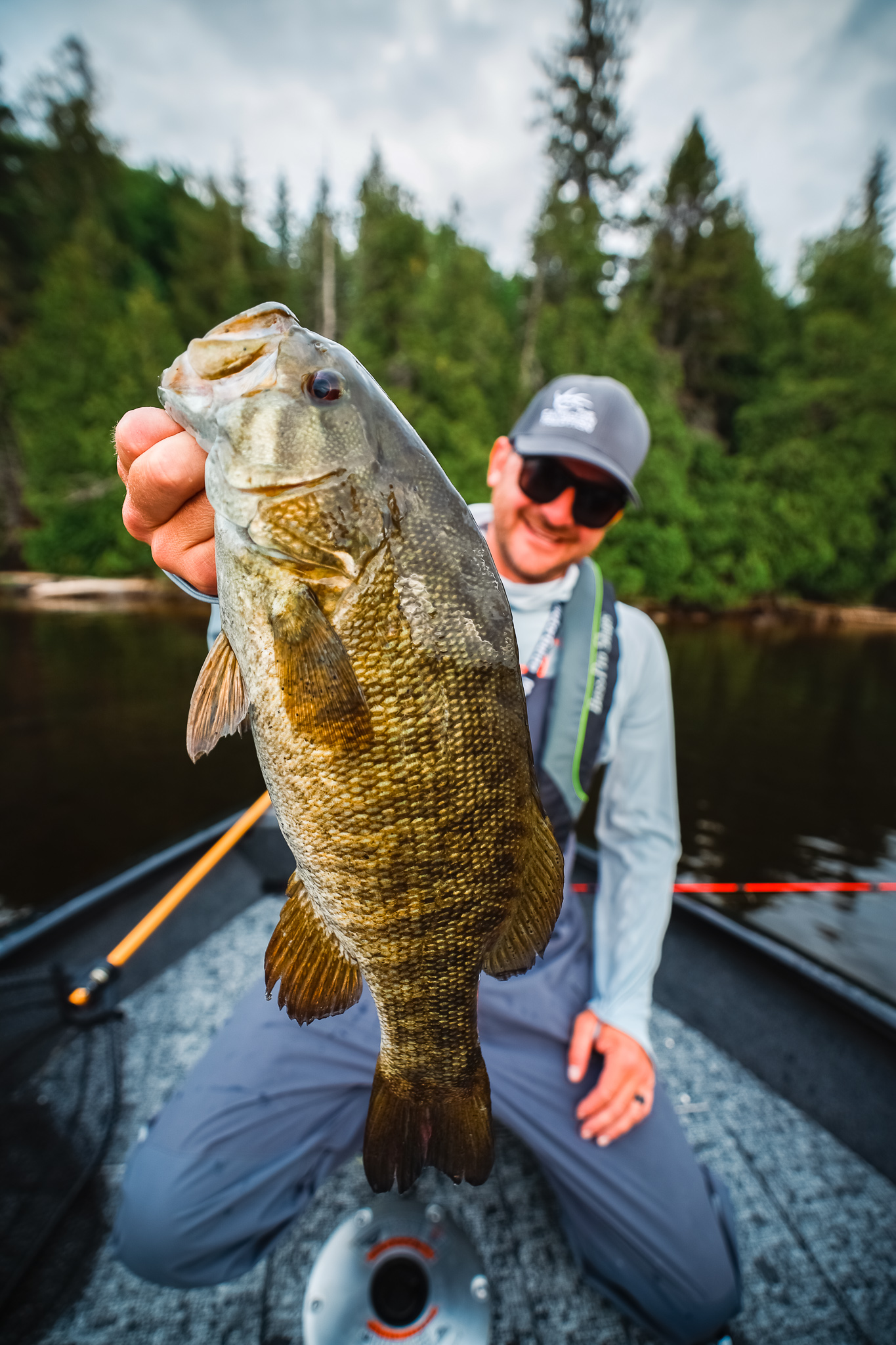
Practice Good Boat Safety When Bass Fishing
Along with finding the right boat, getting proper fishing gear, and taking safety precautions, a boater education course is essential — especially if you fish from a bass boat or any other boat.
A good course like the ones we offer at Boat-Ed can teach you critical information about safety on the water when fishing, so you can boat and fish confidently in any conditions. Our online courses also meet state requirements for boater education before getting a boating license.
So, before heading out for your next boating and fishing trip in the U.S., choose the course for your state and start learning. In Canada, take our Canada-approved course!

